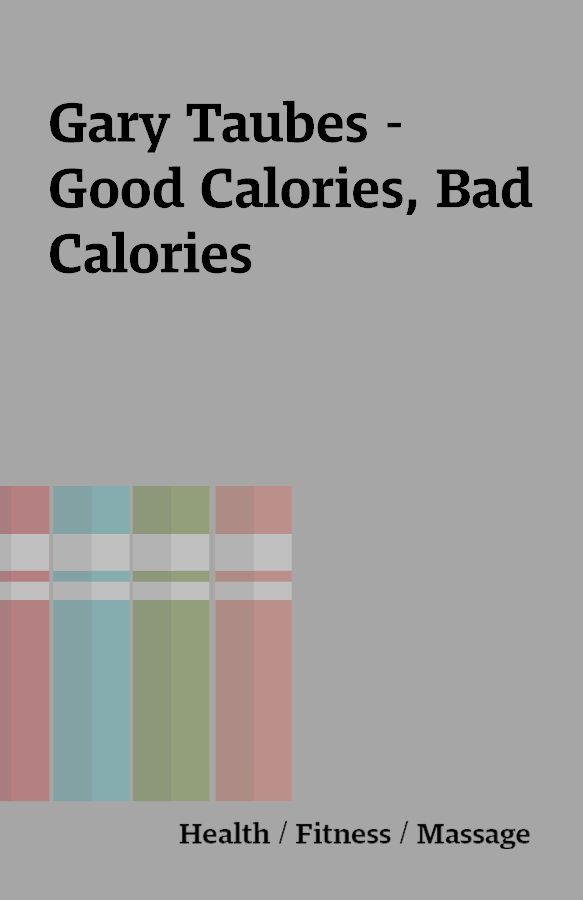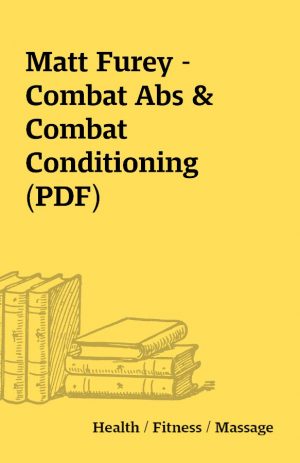Gary Taubes – Good Calories, Bad Calories
Good Calories, Bad Calories – Gary Taubes
[eBook – HTML]
Description
Watch this lecture if you ‘re considering reading this book: http://www.dhslides.org/mgr/mgr060509f/f.htmMy own opinion is that its a science classic that everybody should read at least once.In 2002, science journalist Gary Taubes published an article entitled “What if It’s All Been a Big Fat Lie?” He argued that reputable scientists were coming around to the idea, advanced by diet gurus like Dr. Robert Atkins, that carbohydrates, not fat, are the ultimate dietary villain. If so, he wrote, “the ongoing epidemic of obesity in America and elsewhere is not, as we are constantly told, due simply to a collective lack of will power and a failure to exercise. Rather it occurred . . . because the public health authorities told us unwittingly, but with the best of intentions, to eat precisely those foods that would make us fat, and we did.”The article helped revive the low-carb craze. Bread vanished from restaurant tables, and “dieters” began ordering steaks with a side of bacon. Many lost weight and became believers, but many did not, and the conventional wisdom on how to lose weight shifted only slightly.In Good Calories, Bad Calories, Taubes tries to bury the idea that a low-fat diet promotes weight loss and better health. Obesity is caused, he argues, not by the quantity of calories you eat but by the quality. Carbohydrates, particularly refined ones like white bread and pasta, raise insulin levels, promoting the storage of fat.Taubes is a relentless researcher, shining a light on flaws in the scientific literature. For example, he charges that when scientists figured out how to measure cholesterol in the blood, they became “fixated on the accumulation of cholesterol in the arteries as the cause of heart disease, despite considerable evidence to the contrary.”He also reveals how charismatic personalities can force the acceptance of unproven theories. For instance, nutritionist Jean Mayer persuaded Americans that exercise leads to weight loss when in fact, writes Taubes, exercising may increase hunger and calorie intake. According to a 2000 review of the medical literature, “some studies imply that physical activity might inhibit weight gain . . . some that it might accelerate weight gain; and some that it has no effect whatsoever.” Yet the latest government dietary guidelines, released in 2005, recommend 60 to 90 minutes a day of moderately intense exercise and a low-calorie diet to achieve weight loss. Once again, Taubes shows, conventional wisdom wins out.Good Calories, Bad Calories goes a long way toward breaking the link between obesity, gluttony and sloth by demonstrating that genes, hormones and chemistry play as much of a role in weight gain as behavior does. Taubes’s tales of lame science and flawed laboratory tests are at times brilliant and enlightening. But they can also become repetitive and wearying. In the end, the most compelling case Taubes builds is one against stark dietary advice of any kind; nothing simple can capture the complex reasons for the epidemic rise in obesity. H.L. Mencken once said, “There is always an easy solution to every human problem — neat, plausible, and wrong.” Taubes cites this quote in his book; he, and all of us, would do well to remember it.
You must be logged in to post a review.






Reviews
There are no reviews yet.